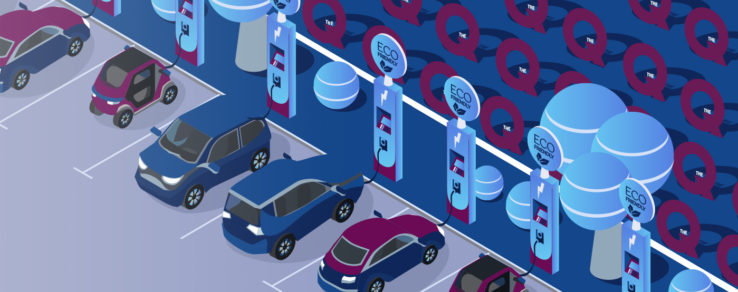As electric vehicles continue to grow in popularity, energy utilities have the opportunity to drive the trend forward as both a trusted resource and EV adoption influencer.
In 2018, more U.S. consumers purchased electric vehicles than ever before – an 81% increase from the previous year. While electric vehicles still only make up a small percentage of total U.S. car sales, demand continues to grow each year. A recent Deloitte report projects that electric vehicles will be priced on average the same as gasoline-powered vehicles by 2022.
Encouraging EV adoption
With the right resources, energy utilities have the power to educate residential and business customers about the benefits of electric vehicles and encourage EV adoption. According to a Smart Energy Consumer Collaborative (SECC) survey, 42% of consumers said involvement or endorsement from their utility would influence their adoption of new technologies like EVs.
When it comes to EV adoption, barriers are often caused by a lack of knowledge about technology and perceptions of high upfront costs. In fact, fewer than 22% of consumers surveyed claim to have a complete understanding of electric vehicles.
Top 5 roadblocks to EV adoption:
Residential customers:
- 65% – Not enough charging stations in the area
- 60% – Upfront cost of EVs is too high
- 50% – EVs do not have enough range
- 50% – EVs increase electric bills significantly
- 48% – Too expensive to install charging equipment at home
Business customers:
- 55% – Prohibitive initial purchase price – 55 percent
- 44% – Inadequate charging infrastructure at facility
- 35% – Inadequate product availability
- 32% – Not enough public charging infrastructure
- 24% – Difficult to get buy-in from top leadership
From charging stations to EE programs
As a provider of electric vehicle “fuel,” energy utilities are a vital source of information for electrification and energy efficiency programs. EV owners are looking for ways to save money and better manage their energy usage. That’s why it behooves energy utilities to promote programs like time-of-use billing and managed charging to EV customers:
- Electrification: Consumers are increasingly managing their energy usage through smart meters. Encourage EV customers to take advantage of this trend to more effectively manage their energy usage.
- Time-of-use billing: Introduce EV owners to off-peak rates and incentivize customers to time-shift their energy usage. For example, customers would receive a lower rate by charging their electric vehicle during off-peak hours of 11 p.m. to 7 a.m.
- Managed charging: This type of program is key to managing increased demand on the grid. By encouraging smart grid-capable EV charging, customers can be rewarded for participating in demand response programs.
Unlike owning a gasoline-powered vehicle, EV ownership is truly a lifestyle. EV owners need to install charging equipment in their home, and business customers must install charging infrastructure at their facilities. However, many consumers are unaware that energy utilities provide EV services. In fact, 60% of consumers said they would look to an outside retailer instead of their energy utility.
The road ahead
As more and more customers choose to live a sustainable, eco-friendly lifestyle, electric vehicles will be at the forefront of this movement. In fact, the International Energy Agency forecasts that 125 million electric vehicles will be on the road worldwide by 2030. That’s why energy utilities need to position themselves not only as EV experts, but as trusted smart home and electrification service providers.

